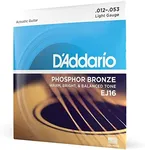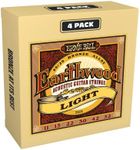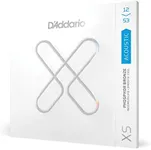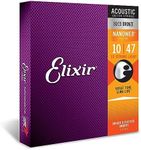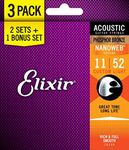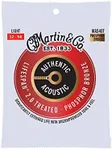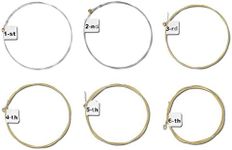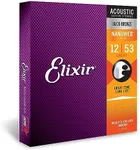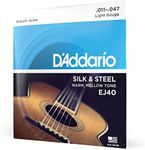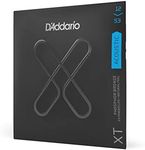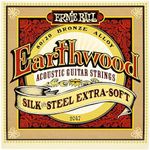Buying Guide for the Best Acoustic Guitar Strings
Choosing the right acoustic guitar strings can make a big difference in how your guitar sounds and feels. The strings you pick affect the tone, playability, and even the longevity of your instrument. It's important to consider your playing style, the type of music you enjoy, and your experience level when selecting strings. Understanding the key specifications will help you find a set that matches your needs and enhances your playing experience.Gauge (Thickness)Gauge refers to the thickness of the strings, usually measured in thousandths of an inch. Lighter gauge strings are thinner, making them easier to press down and bend, which is great for beginners or those who play gentle styles like fingerpicking. Heavier gauge strings are thicker, producing a louder and fuller sound, but they require more finger strength and are better suited for strumming or more aggressive playing. If you’re just starting out or prefer a softer touch, lighter gauges are a good choice. If you want more volume and durability, or play in lower tunings, heavier gauges might be better.
MaterialThe material of the strings affects both the sound and the feel. Common materials include bronze, phosphor bronze, and silk & steel. Bronze strings are bright and crisp but can lose their tone quickly. Phosphor bronze strings have a warmer, richer sound and tend to last longer. Silk & steel strings are softer on the fingers and produce a mellower tone, making them ideal for folk or fingerstyle players. Choose the material based on the sound you prefer and how comfortable you want the strings to feel under your fingers.
CoatingSome strings have a special coating that helps protect them from dirt, sweat, and corrosion. Coated strings last longer and maintain their tone over time, but they can feel a bit smoother or slicker than uncoated strings. If you play often or have acidic sweat that wears out strings quickly, coated strings can be a good investment. If you prefer a more traditional feel and don’t mind changing strings more often, uncoated strings might suit you better.
String CoreThe core of the string can be either round or hexagonal in shape. Hex core strings tend to have a brighter sound and more consistent tension, while round core strings offer a warmer tone and a more flexible feel. If you want a punchier, more modern sound, hex core strings are a good option. If you prefer a vintage, softer tone, round core strings might be the way to go.
String WindingWinding refers to how the outer wire is wrapped around the core of the string. Most acoustic guitar strings use a roundwound design, which gives a bright, textured sound. Flatwound strings are smoother and produce a mellower tone, but are less common for acoustic guitars. If you want a traditional acoustic sound with good projection, roundwound strings are standard. If you’re looking for a softer, less bright sound, flatwound strings could be considered.
